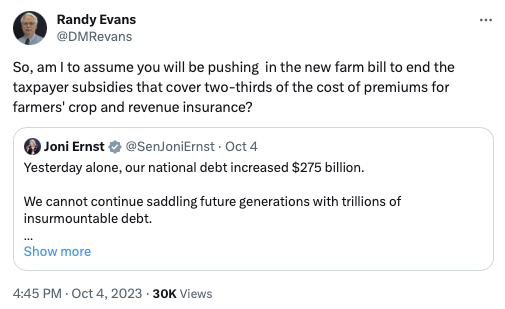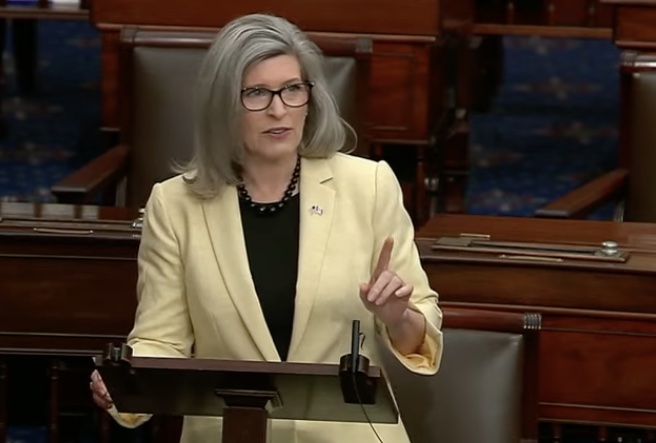Randy Evans is executive director of the Iowa Freedom of Information Council and can be reached at DMRevans2810@gmail.com.
For many years, an Iowa State University political science professor and I met several times a year for coffee and conversation.
During our coffee klatches, I probed my friend’s thinking on world affairs, on government issues, and on politics in Iowa and across the United States. I suspect he tried to use these get-togethers to give me a something of a graduate-level seminar in American government, absent any lectures.
Educators these days are frequently accused of trying to indoctrinate their students with a particular point of view. But what I came to realize during those sessions at the Stomping Grounds coffee shop in Ames was fundamental to excellence in teaching: The professor did not tell me what to think. He tried to get me to think more clearly and to analyze with more sophistication and depth. He helped me spot weaknesses in my own opinions and develop a better understanding of factors that may lead other people to see things differently than I did.
After retiring, my friend sold his acreage and left Iowa for a more scenic place to live. Our caffeine intake has declined, but we still stay in touch via email. Last week, the professor’s Stomping Grounds “student” field-tested the professor’s method of posing challenging questions to get people to re-examine their own opinions and see why some people have a different view than other people.
U.S. Senator Joni Ernst has posted a series of social media comments in recent weeks expressing her feelings about the nation’s growing debt and President Joe Biden’s controversial decision to forgive another $9 billion in student loan debt.
She posted on X, the social media platform formerly known as Twitter, this statement on October 4: “Yesterday alone, our national debt increased $275 billion. We cannot continue saddling future generations with trillions of insurmountable debt. It’s time for Washington to stop spending money we don’t have.”
Taking my cue from the coffee shop Socrates, I responded to Ernst’s comment by posting: “So, am I to assume you will be pushing in the new farm bill to end the taxpayer subsidies that cover two-thirds of the cost of premiums for farmers’ crop and revenue insurance?”

The senator did not respond to my comment. But 30,000 people around the country have read our exchange, according to X’s statistics. Almost 800 did give Ernst and me the benefit of their thinking.
“Touche!’’ wrote a political consultant from Massachusetts.
Another person wrote, “Independent American farmers demand no less.”
A reader called John commented, “John Deere driving welfare queens? Whatever happened to boot straps?”
Former State Senator Rob Hogg wrote, “Or end fossil fuel subsidies? Or cut the defense budget? Or undo more of the Trump tax cuts?”
A Florida lawyer wrote, “Don’t get me started on crop insurance, which America SHOULD be subsidizing instead of paying for cheese we will never eat.”
There was this comment about Ernst’s concerns over insurmountable debt: “But you voted for Trump’s TAX CUTS for the rich = 8 trillion in 4 yrs.”
A reader calling himself Average Joe Iowan wrote, “We can’t eat ethanol. It comprises over half of the corn Iowa’s farmers produce. There is room to cut farm subsidies.”
A reader in Minnesota asked, “If farmers are so successful why do they need government handouts?”
And then there was this take on the postings Ernst and I made: “Ernst: No, not THAT insurmountable debt!!!”
But other readers reacted strongly to what they see as the negative consequences of cutting taxpayers’ subsidies for federal crop insurance. “That would send land prices in the Midwest sharply lower. Lots of repercussions,” one noted.
A reader from western Iowa added, “Ya, why not go after farmers.”
Another reader calling herself Lady Patriot wrote: “Randy would rather see Iowa farmers fail. Thanks to Joni, that won’t happen.” Another person replied, “It’s OK Randy. You get your food from the grocery store. Correct?”
One reader was even more pointed. “Let’s also end taxpayers subsidizing healthcare. And we don’t have to stop there. We can end all sorts of subsidies for people who produce nothing. That would make more sense now wouldn’t it? Or, maybe you can just shut the f*ck up?”
An Iowan with a similar view, minus a desire to stuff a sock in my mouth, wrote: “You should see flood insurance. Let’s end taxpayers funding that too. And then we can do the same to the Affordable Care act. Yeah, let’s end subsidies for those who produce nothing. The list is endless.”
Back to my professor friend. He saw what I was doing on the X platform and responded to those who criticized my post: “Farm subsidies and ‘paying farmers to NOT grow a crop’ is in the bullseye of people from non-farm states. Cutting government spending is difficult because my crucial program—farmers—may be ‘deep-state waste of money’ to other Americans.”
As usual, my friend had a broader take-away from the back-and-forth over the posts Ernst and I made. It is easy for most of us to agree there is room for the federal government to reduce spending. The challenge comes in getting people to agree on which programs to cut.
With the current divisions between D’s and R’s in Washington—and even among Republicans—it is difficult these days for members of Congress to agree when to go to lunch. Or whether to have coffee.
Top image: Screenshot from official video of Senator Joni Ernst criticizing the Biden administration’s student debt relief policy during a Senate floor speech on March 30, 2023.


3 Comments
If taxpayers are going to continue to heavily subsidize crop insurance...
…then taxpayers should at least be getting much less water pollution and soil loss in return. Farmers and landowners are currently required to do some moderate conservation in order to be eligible for subsidized crop insurance. But the conservation compliance system is weak and inadequate and has giant loopholes. The system needs to be greatly improved. And it has been strongly recommended that climate-change mitigation conservation be added to the requirements.
Meanwhile, below is excerpted from a National Sustainable Agriculture Coalition story from 9/12/23. Do we really want this system to continue as is?
“80 percent of farmers are not enrolled in a crop insurance plan, even as the threat from floods, drought, hurricanes, and other weather events grows. The federal crop insurance program is simply not accessible for small to mid-sized, diversified, and organic farmers, even though many would enroll if it were a feasible option.
Meanwhile, federal crop insurance subsidies to the largest and highest-income farms cost taxpayers a record $19.13 billion in 2022. This shatters the record $11.63 billion that farmers received in 2021, which itself was double the prior decade’s average at roughly $6 billion annually.”
PrairieFan Tue 10 Oct 9:17 PM
you're right things are dire, any Iowa elected officials with you?
this is our tragic dilemma the Republican Party (especially here in Iowa) is largely ruled by articles of faith and so divorced from many vital aspects of reality (climate change, germ theory of disease, historical records, etc) such that nearly all politics are part of a culture war that needs to be fought on cultural grounds (people can’t be reasoned out of faith commitments). Does the culture of Iowa Dems include a commitment to a radical reorganization of Agriculture and environmental protections, or like the Party’s political leadership are they just about greenwashing tweaks of the current systems?
dirkiniowacity Wed 11 Oct 1:35 PM
we need real civics classes and not more mythology
too bad yer friend wasn’t an economist he could have let you (and the Senator) know that the federal government doesn’t have a limited amount of money at it’s disposal. There are real limits in the productive capacity of our current political-economy and so inherently political questions (as makers/monitors of markets governments are in the business of picking winners and losers) about what we can and should prioritize accordingly, and one would hope (perhaps in vain) that we could have such a debate but that would take a very different (both formal and informal) system of education then we currently have. See for example the work of prof Kelton who was chief economist on the U.S. Senate Budget Committee.
https://stephaniekelton.substack.com/
dirkiniowacity Wed 11 Oct 10:25 AM